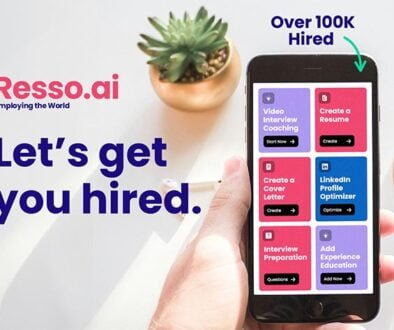Four Smart Ways To Dodge Dumb Interview Questions
You’re about 5 minutes into your chat with a recruiter or employing supervisor, and you immediately recognize that it’s mosting likely to be tough to reveal what you’ve obtained. The very first few inquiries they have actually thrown out are so common that addressing with any kind of precision is out of the concern. And also they’re zeroing in on the parts of your resume that you’re the very least thrilled to discuss.
Do not worry– there are a couple of means you can evade those aggravating inquiries and also steer the discussion back toward what’s really remarkable about you. Below’s just how.

One: Suggest A Better Related Subject
Your hiring supervisor may be inexperienced at performing meetings, otherwise bewildered with their job that week as well as not really prepared to talk to you. If they raise something you’d rather not discuss or simply don’t have much to share about, occupation specialist Martin Yate suggests posing an inquiry like this: “Would it be of value if I explained my experience with __?”
If they point out something comparable to what you’d really such as to talk about, Yate recommends segueing with a comment like, “I just recently completed a task just like that. Would certainly it pertain to tell you regarding it?”
” This technique– asking inquiries that enable you to comply with up with your skills and accomplishments in that area– will give the interviewer information to make a positive judgment on your candidacy,” Yate clarifies; also if it’s not details they have actually actively chosen with their very own line of examining.
Two: Focus On The Future
If you are worried that the hiring supervisor is investing too much time talking about an old placement you have actually held or work experience that’s currently rather obsolete, change to the future tense.
Task hunters often despise addressing hypothetical inquiries like, “Where do you see yourself in five years?” however, the very best tactics for managing that standby can help you leave the weeds of your deep past too.
As hiring pro as well as Fast Business factor Lars Schmidt pointed out in a previous tale, “Today’s workers are more likely to be on a nonlinear path,” so you can basically claim exactly that to a hiring supervisor that keeps harping on a placement you held 4 years ago: “I discovered a lot in that function, and the experience helped me pivot toward one more career course. I believe that actually showed me how to locate transferable abilities in unexpected places as well as adjust to alter.”
Then look ahead: “Think about moving the response to mounting it around intangibles, understanding, as well as experience you intend to gain,” Schmidt recommends. This can push the recruiter to consider your future possibility instead of simply your work background.

Three: Return to The Job Summary
You might locate yourself fielding questions you should not need to– some are legally out-of-bounds. Anything involving your marriage condition, gender, race or ethnic culture, religious beliefs, and other personal information has no place in a work meeting. Certain states, as well as districts, have actually also banned employers from inquiring about prospects’ income history because it has a tendency to strengthen gender as well as racial pay voids.
Yet “often, the job interviewer doesn’t realize they’re asking something that is unlawful and might be regarded as offending,” one job trainer told Glassdoor in 2015. “It’s no justification, yet they might think they’re just having a pleasant discussion.” So if you locate your work interview heading right into the region you’re unpleasant with, always nudge it back towards the work description. For instance, “I’m confident I’ll have the ability to carry out all the responsibilities of the duty” is a perfectly acceptable non-answer to a concern regarding your kids.
You can likewise show questions back to your recruiter. If you’re asked where you’re from, you could state, “I have actually been based here in Chicago since college. What concerning you?” This lets you stay clear of delving into where you grew up and transforms it into simple small talk.
Four: Ask Your Own Concern
You can typically address an inquiry with an inquiry. You may need to provide an obscure or noncommittal response first, but as long as it allows you to slide into a conversation subject you do have a great deal to state around, go for it: “Mentioning ‘success,’ exactly how are you seeking to measure that in this role?”
Generally, the segue isn’t the difficult component; it’s finding a sharp follow-up that allows you to turn the tables, collect more intel on the opportunity, and launch into something you’re far better prepared to talk about. If you need a couple of concepts, these are some significant inquiries to maintain in your back pocket:
How would you define the group I would certainly be dealing with?
What do you like a lot about functioning below?
Exactly how do you take care of differences or problems within the organization?
You might not have the enjoyment of an expertly run task interview; however, do not let that keep you from landing the work.




